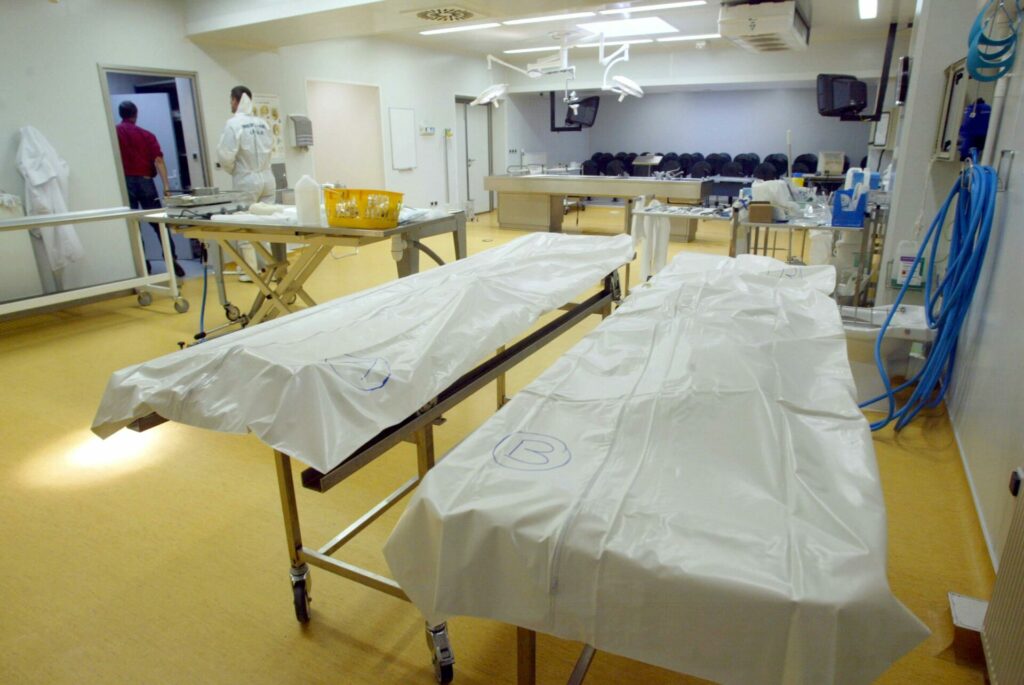As an estimated 70 suspicious deaths go unexamined in Belgium every year, Federal Justice Minister Vincent Van Quickenborne is investing €2.25 million in two forensic medicine centres to raise the number of autopsies across the country.
Autopsies are performed in an estimated 1-2% of deaths in Belgium, while the European recommended target is 10%. Now, Van Quickenborne is investing in forensic medicine to increase this percentage as more autopsies naturally lead to more determinations of suspicious deaths.
"The Justice Department must act faster, more humanely and stricter in the case of potentially suspicious deaths. It is unacceptable that an estimated 70 suspicious deaths per year go unnoticed in our country," he said in a press release, adding that he is allocating €2.25 million to open these expertise centres.
Detecting suspicious deaths faster
"First and foremost for the next of kin, so they can quickly find out the cause of death, be informed in a humane way and start their grieving process. For the GPs and people from the police and judiciary in the field, too, so they are in the field with the necessary know-how and can detect suspicious deaths faster."
After a death, it is the job of the first doctor present (often the general practitioner or a first responder) to assess whether it concerns a non-natural or suspicious death. If this is the case, the public prosecutor is notified and an investigation by the police and the law doctor takes place.
By default, this involves an initial investigation and an external examination of the body. In consultation with the medical examiner and the laboratory, the public prosecutor will determine whether further investigation is warranted. In that case, it may be decided to proceed with an internal examination, known as an autopsy.
Related News
- Average of ten rapes reported per day, highlighting urgent need for care centres
- Dutch authorities to decide on extradition of Van Quickenborne kidnapping suspects
- 1,000 daily searches on online database for legal and language experts
The idea is to establish expertise centres within several hospitals, where medical examiners can unite, work out working arrangements and use the same modern and high-tech equipment – ensuring more capacity and a more structured approach, in close cooperation with the public prosecutors' offices.
By 2024, the centres should also make it possible for current and future medical examiners to work in a more professional and modern way, Van Quickenborne stressed. In time, the two centres should grow to five centres across the country.

